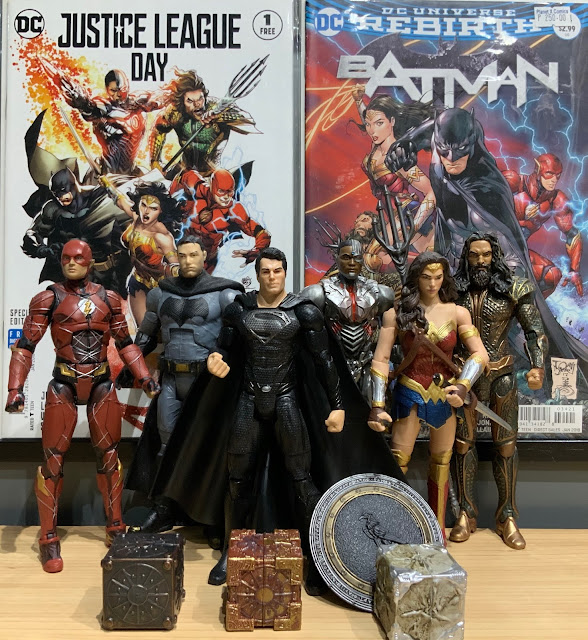It all began with the big Justice League Movie flop. Which eventually cancelled their big plan to catch up with Marvel's Cinematic Universe. The haphazardly planned DC Extended Universe went on a nose dive that was heading towards obscurity. Leaving the future uncertain. But on the small screen, the quite successful and Fan favorite Arrowverse had continued to sew the threads of their interconnected shows. Beginning with Arrow (Green Arrow), a spiritual successor to Christopher Nolan's highly successful The Dark Knight Universe, the show would spin-off to include the more fantastical elements of the DC Universe's Metahuman population. The Flash was the first. Which would open the doors to the arrival of a host of Superheroes that are not grounded on the more realistic setting of shows like Arrow and The Dark Knight. The way Warner TV would marry the concepts of Nolan's grounded vigilantes to DC's more "SUPER" Heroic heroes would birth the arrival (heralded by Flash) of such heroes as Firestorm, The Atom, Sgt. Steel, Black Canary, Mr. Terrific, Kid Flash, Vibe, Killer Frost, Constantine, Supergirl, Martian Mahunter, and a host of other heroes of the DC Universe that became too big for one, two, or three shows to occupy. And the wide inter-connectivity of these heroes would also usher in the annual Arrowverse crossovers, a some sort of made for TV mini-movies that also serves as the coming together of these DC Characters. But the latest crossover would be the Big Bang! Titled Crisis on Infinite Earths, this would not only bring together the heroes of the Arrowverse, but this also served as the vehicle that formally acknowledges the inter-connectivity of DC's vast resources of past films and TV Shows to the current iterations of their DCEU and Arrowverse shows. This essentially was the birth of the DC Multiverse. This proved to be the spark that would lit the direction of Warner/DC's future TV and film projects.
While Marvel is successfully crushing it in the Hollywood box office with their Cinematic Universe, Warner is taking an even more ambitious step by green lighting their Film Multiverse. Something I believe is the right direction to take. In a previous article that I wrote, I argued that the reason why Marvel has been so successful with their cinematic universe was because their characters were not weighted by expectations and past cinematic baggage and offered a fresh imagining of their superheroes because these were basically their first appearances on the big screen. Contrast that to Warner/DC, which had been successful in the big screen thru their past movie offerings of Superman and Batman dating back from the 70's down to the 90's. It cannot be denied that there is a large portion of the fan base who are still in love with the nostalgia of these past offerings which were rendered so beautifully (The first two Superman and Batman movies) on the big screen. So comparisons to these movies are inevitable. This have been the dilemma of Warner/DC as the attempt to latch on to that nostalgia by way of Superman Returns did not turn out to be such a box office hit despite the approving reviews of critics. Whatever new re-imagining of these characters (Superman and Batman primarily) will always suffer the comparative memory of the past iterations. It is a dilemma that Warner/DC will continue to contend with (something which I believe will also happen to Marvel once they started recasting a new Tony Stark and Steve Rogers).
So it is imperative for Warner/DC to embrace the past and incorporate them to what they are doing now, making people understand the concept of the Multiverse. A universe of stories that may or may not be interconnected with one another. This move by Warner/DC would free up the creative control of the studio and allow visionary directors/storytellers the leg room to tell their stories without the pressure of inter-connectivity to align with the whole narrative of a planned cinematic universe. Given that Marvel's successful interconnected universe is no slouch (how many companies attempted to copy Marvel yet failed), and is a success story of their own. This move by Warner/DC will allow their creative team to focus on character centric movies rather than being stuck and limited to the planned connection to a larger universal tone. This made movies like The Joker possible, something that the distinguished competition would never allow. The initial residue of the failed DCEU birthed fun films like Aquaman, Shazam, and Birds of Prey, which made vague references to the old DCEU. These however enjoyed varied levels of success, which was enough for Warner/DC to push on with their plan to treat their films differently from each other and just focus on telling good stories rather than pressure themselves to make everything interconnected.






No comments:
Post a Comment